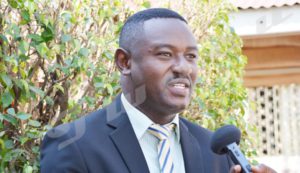Government, Civil Society Organizations and International Organizations remain concerned about human trafficking in Burundi. A debate session was organized this Tuesday, November 6, to elaborate a plan of integrated activities aimed at banning the trade of humans in the country.

Jacques Nshimirimana: “A legal framework would help to fight against the human trafficking ”
Jacques Nshimirimana, chairman of the national federation of associations defendingchildren’s rights-FENADEB says about 4000 young girls have been victims of human trafficking since 2015. “We don’t have exact figures, but referring to the testimonies received in our federation, human trafficking is a reality in Burundi,” says Nshimirimana adding that the phenomenon was not common in Burundi and the first human traffickers came from the DRC.
Mr. Nshimirimana says the victims pass through Tanzania, Kenya, Tanzania and Rwanda in transit before reaching the destination countries namely the gulf countries. At the beginning, the most affected provinces were Muramvya, Rumonge, Gitega and Muyinga. “After few months, the entire country was affected. We now receive testimonies or cases of young girls who were victims of human trafficking from the whole country,” says Nshimirimana.
The FENADEB chairman says the main causes of human trafficking are poverty, ignorance and unemployment. “Those who are involved in human trafficking take advantage of the current country’s situation to get a big number of victims,” he says.
For him, Burundi government and the destination countries would agree upon a partnership supervising any activity conducted by foreign people. “The victims are convinced that they shall get good jobs once in those countries, which is not a reality. Some of them are sexually abused,” he says. Mr. Nshimirimana says the legal framework would protect Burundian ladies traveling to the gulf countries.
For this, the International Organization for Migrations in Burundi with its partners has set up a “fight against modern slavery” project to contain human trafficking.
As for Gaston Sindimwo, First Deputy President, the effective fight against the networks of human traffickers require the synergy of the technical and financial partners involved in the fight against the trafficking in persons. “Criminal justice chain, civil society organizations and institutional services must be involved even in the protection of victims,” he says adding thatthose organizations must work closely with transit countries in order to eradicate the networks.



















 IWACU Open Data
IWACU Open Data

